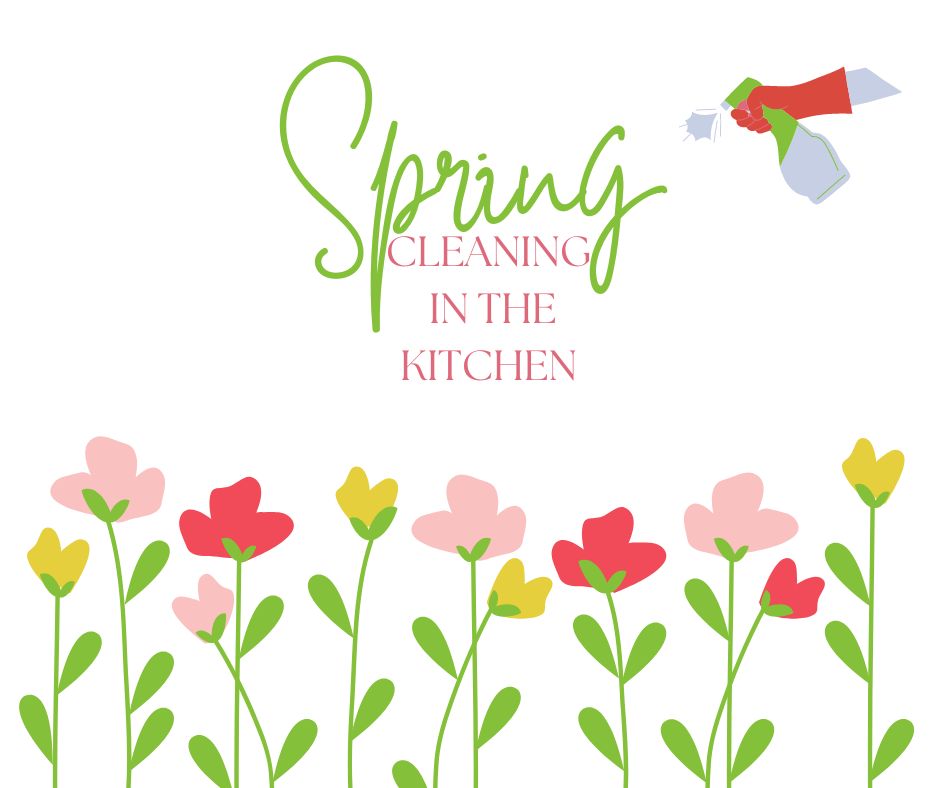By Katlynn Gassett, RD, LDN
Did you know the “CDC estimates that each year roughly 1 in 6 Americans (or 48 million people) gets sick, 128,000 are hospitalized, and 3,000 die of foodborne diseases”? There are 31 pathogens known to cause foodborne illness. In addition to these 31 pathogens, unspecified agents (or agents with insufficient data) can also cause foodborne illness.
Spring is a great time to deep clean your kitchen. Illness-causing bacteria can be found in many places in your kitchen. Always be sure to regularly clean your kitchen to avoid cross-contamination.
Tips to keep a clean kitchen:
- Regularly wash countertops with hot soapy water before and after preparing food.
- Don’t forget to clean your kitchen sink, appliances, cutting boards, utensil holders, kitchen towels, and cabinet doorknobs.
- Sponges:
- Kitchen sponges are difficult to clean.
- Regularly clean your kitchen sponge to help reduce bacteria and prevent cross-contamination. You can clean your sponge by microwaving or boiling it to reduce some of the bacteria, however, these methods alone are not adequate to ensure that your sponge will reduce potential cross-contamination of hands, kitchen counters, and food.
- Always replace your sponge frequently.
- Refrigerator safety:
- Bacteria can hide in your refrigerator and freezer. Be sure to clean the shelves and drawers with hot and soapy water and rinse well. Don’t forget to clean underneath drawers and the edges of glass shelves.
- Make sure your refrigerator temperature is set to below 40 degrees Fahrenheit
- Placing an opened box of baking soda on a shelf is an easy way to keep your refrigerator smelling fresh.
- Let’s talk about leftovers…
- Regularly check the food in your refrigerator to make sure it has not spoiled.
- Also check the food in your freezer, cabinets, and pantry. Look at expiration dates to make sure they have not passed. Put foods that are nearing their expiration date in the front, so they are used first.
- Throw away or compost perishable foods that should no longer be eaten at least once a week.
- Leftovers are typically good when kept refrigerated for 3 to 4 days or frozen for 3 to 4 months.


 Quality Awards
Quality Awards

